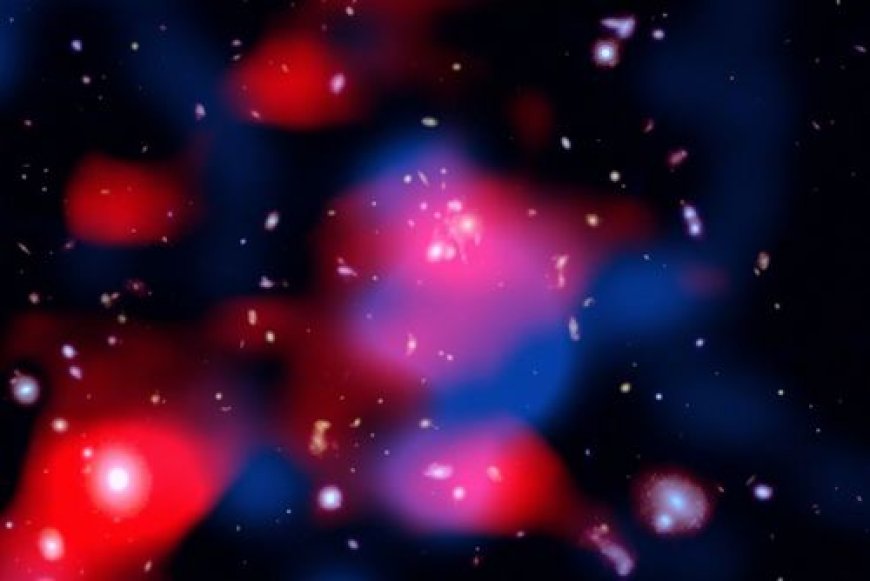Scientists Discover 'Mini Halo' Shedding Light on Early Universe Formation
Astronomers have found a distant galaxy cluster with a newly detected radio mini-halo, the most distant ever seen. This discovery reveals how galaxy clusters in the early universe were influenced by high-energy particles. Led by Julie Hlavacek-Larrondo from Université de Montréal, the study provides insights into the evolution of cosmic structures.

This stunning image reveals a distant galaxy cluster teeming with energy: galaxies shine in visible light (white), ghostly red clouds unveil a newly discovered radio mini-halo—the most distant ever detected—and blue wisps trace the hot gas glowing in X-rays.
Astronomers co-led by UdeM's Julie Hlavacek-Larrondo detect a gigantic cloud of high-energy particles 10 billion light years away from Earth.
Astronomers have uncovered a vast cloud of energetic particles surrounding one of the most distant galaxy clusters ever observed, shedding new light on the evolution of galaxy clusters in the early universe.
Co-led by Université de Montréal's Julie Hlavacek-Larrondo, the scientists say their finding shows that entire galaxy clusters, among the largest structures in the Universe, have been immersed in high-energy particles for most of their existence.
The discovery, at a distance so great that it takes light 10 billion years to reach Earth, is the most distant 'radio mini-halo' ever found, doubling the previous record.
Such a mini-halo consists of highly energetic charged particles in the vacuum between galaxies in a cluster, which together emanate radio waves that can be detected from Earth.
Accepted for publication in Astrophysical Journal Letters, with the pre-print version of the paper published today, the discovery shows that even in the early universe, galaxy clusters were already shaped by energetic processes.
And understanding how energy moves through galaxy clusters will help in piecing together the story of cosmic evolution, the astronomers say.
According to the source: UdeMNouvelles.
What's Your Reaction?
 Like
0
Like
0
 Dislike
0
Dislike
0
 Love
0
Love
0
 Funny
0
Funny
0
 Angry
0
Angry
0
 Sad
0
Sad
0
 Wow
0
Wow
0



















































































































































